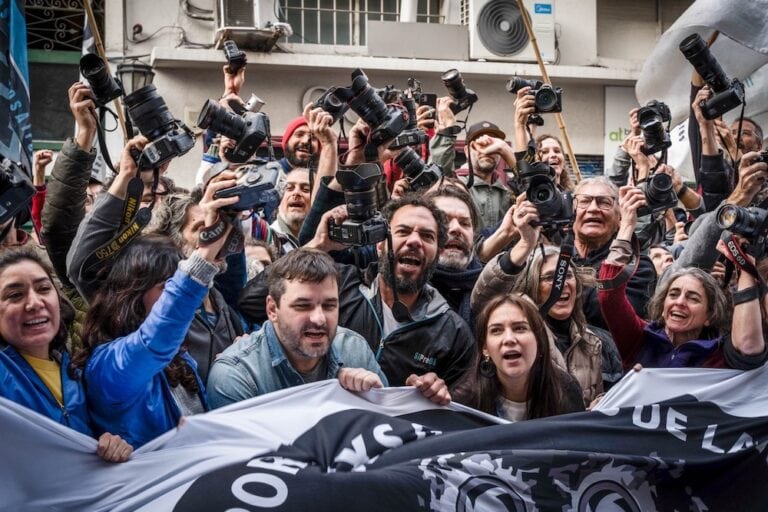(Periodistas/IFEX) – The ruling party has sent two proposals prepared by PERIODISTAS to the special legislative session of Congress. The proposed projects are intended to increase protections for free expression. If these initiatives are approved, Argentina will be the first Latin American country to decriminalise slander and defamation of public functionaries. If public functionaries feel […]
(Periodistas/IFEX) – The ruling party has sent two proposals prepared by PERIODISTAS to the special legislative session of Congress. The proposed projects are intended to increase protections for free expression. If these initiatives are approved, Argentina will be the first Latin American country to decriminalise slander and defamation of public functionaries.
If public functionaries feel offended, they can seek damages in a civil court, but not in a penal court. This means that if the proposal initiated by PERIODISTAS is agreed to by Argentina’s principal political forces, people will no longer be threatened with losing their rights to freedom of expression and information as a result of public interests.
Another legal project carried forward in the same vein would modify the Penal Code’s provisions on limitations, so that suits in defense of public functionaries’ honour would not extend indefinitely, as is the currently situation. The functionary would be able to obtain faster resolution if they can prove that the offence was committed with bad intentions, and a constant threat will not hang over the defendant. Journalists have been frequent victims of this legal mechanism, which also weighs heavily on other citizens.
In January 1999, PERIODISTAS presented a condemnation of the Argentina State to ICHR, through the OAS’s special rapporteur, Santiago Canton, for violations of the right to freedom of expression. In October, the Commission convened on both topics before an audience and fifteen days later the national government accepted a solution, suggested by PERIODISTAS, that the national authorities should initiate the reform of the civil and penal codes as elaborated by the journalists’ organisation.
The organisation lent support to the initiatives of President Fernando De la Rúa, former president Carlos Menem and the former Justicialista party presidential candidate, Eduardo Duhalde.
As an expression of the broad consensus they have reached, both projects were signed by senators Jorge Yoma, of the Justicialista opposition party, and José Genoud, of the governing Alianza, who took part in writing the text. “The criticism and debate of public matters easily tends to be caustic, harsh and insulting. These can often be means of expressing indignation, an essential ethical motive for the maintenance and development of the democratic system,” said both senators.
The Senate’s first public hearing resulted in support for the project from senators José Antonio Romero Feris, from a Corrientes provincial party, who presides over the freedom of expression commission, and Pedro del Piero, from Frepaso, as well as Justice Minister Ricardo Gil Lavedra, the Special Rapporteur for Freedom of Expression of the OAS, Santiago Canton, ADEPA’s legal advisor, Gregorio Badeni, and the vice-president of PERIODISTAS, Horacio Verbitsky, who explained the project’s genesis.


